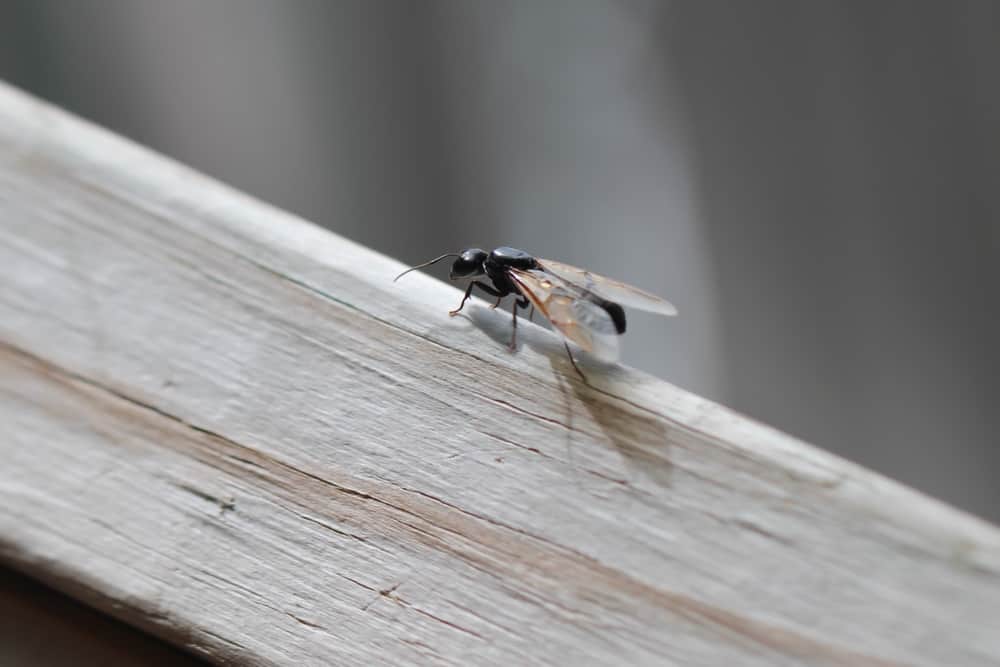Encountering a swarm of flying ants for the first time can be a daunting experience, especially if you didn’t know that some ants can fly. Indeed, most ants can’t fly and only some do for a limited time in the year. Many species of ants never fly too, so, depending on where you live, you very well may not realize that there are flying ants out there.
So, what should your reaction be if you see a swarm of flying ants descending upon you? Do flying ants bite? Are they dangerous? We’ll answer those and other key questions below.
What Even Are Flying Ants?
Flying ants aren’t a separate species of ants nor are they something all that unique. Instead, flying ants are quite ordinary members of many ant species that simply serve their own role in the life cycle of the species. More specifically, flying ants are the few males and females that sprout wings every spring and fly out of their ant nests to look for mating partners from other colonies.
This is done by all species of swarming ants such as Carpenter ants, Pavement ants, Moisture ants, and others. It usually happens during the late spring and early summer months but it can also happen in late summer, depending on the exact climate we’re talking about. As long as the weather is warm and humid, these “reproductives” will leave their ant colony and embark on their nuptial flights, often forming a swarm in areas with many ant colonies.
Once a flying ant female – a future queen – finds enough males of the right type and in the right place, she’ll settle in and start establishing a new ant colony. Females are typically much larger than males as it’s their job to populate an entire new colony.
Their size also makes them pretty sub-par fliers and an easy target for birds, reptiles, and other predators. That’s why every colony produces a lot of female fliers too – so that at least a few survive to create a new colony. The males, on the other hand, have a pretty short life span and only one task – find a female and reproduce.
Do Flying Ants Bite?
In a single word – yes. Flying ants can and do bite, particularly when they are feeling threatened. This doesn’t mean that you should just run away in fear every time you see an ant flying, however, because there are quite a few caveats we should also mention.
For starters, not all flying ants bite, and a lot of those that do don’t really bite all that effectively even if you have allergies. The reason for that is that not all ants have stings on their abdomen or have powerful enough mandibles to deliver effective bites.
This means that most ants simply don’t even try to bite something as large as humans because they know there is no point in doing so. What’s more, even if such an ant tries to bite you, the result would typically be so ineffective that you probably won’t realize anything has happened.
Still, some flying ants can deliver quite noticeable bites and stings so this is something you should remain aware of, especially if you know there are such ant species in your area.
Which flying ants bite, when, and why?
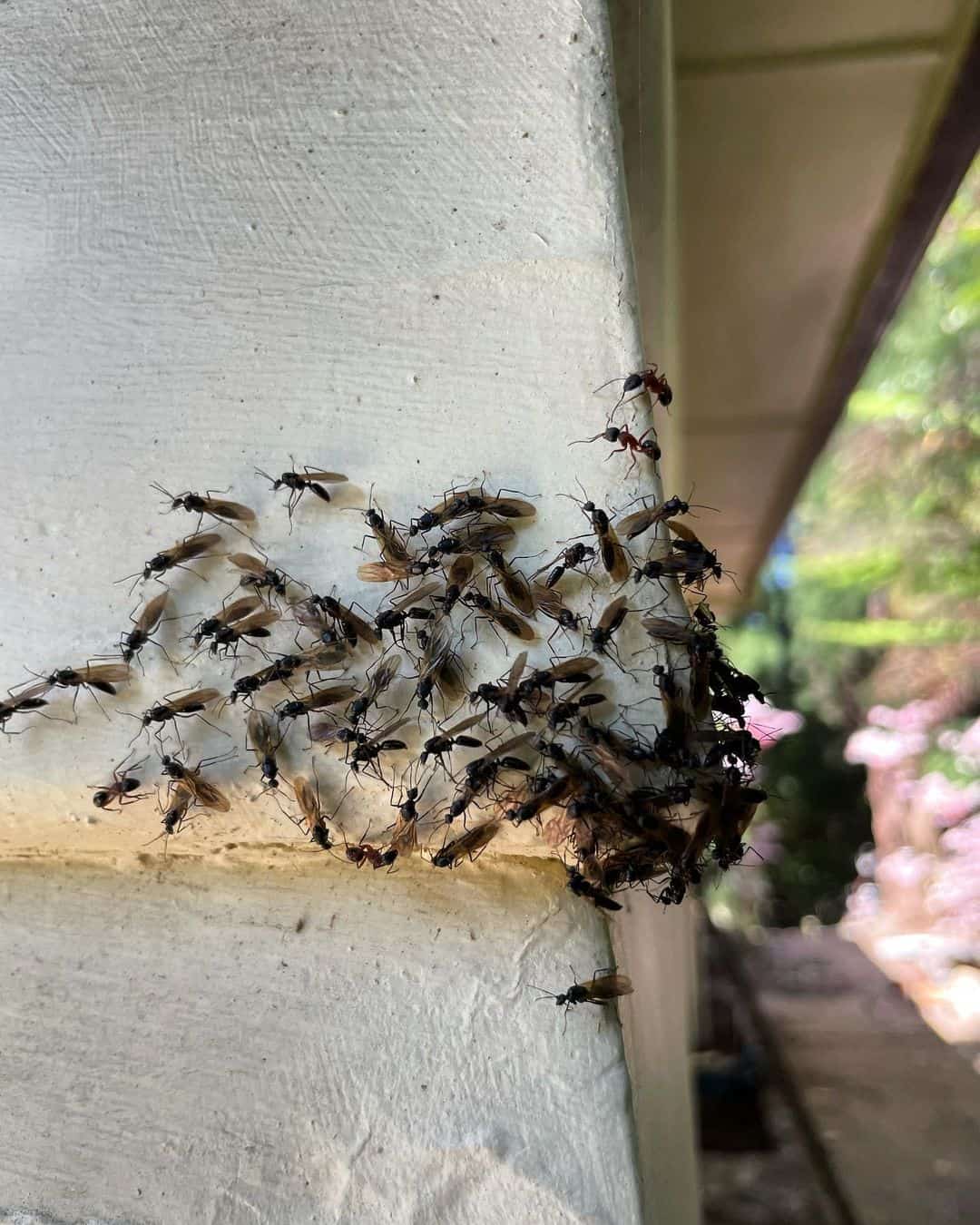
Credit: harryshousewarburton
The most likely flying culprits of ant bites are the flying fire ant and the flying black carpenter ant. The former actually has a powerful sting rather than a bite while the latter is one of the few insects with mandibles that are so strong that it would indeed try to bite a human if it feels the need to.
Most other species of ants would be much more likely to just try and run or fly away or, if they do try to bite, they won’t achieve much. Fire ants and black carpenter ants can be quite the pests, however, and they seem to know it given how aggressive they can be. Fire ants, in particular, are notorious for taking their stings out at the smallest perceived transgression – often even just if you’re standing in their way.
So, if you know that you have fire ants or black carpenter ants in your area, and especially if you know that you’re allergic to insect bites and stings, it may actually be a good idea to steer clear of their fliers in the spring and summer.
That being said, flying ants aren’t inherently more dangerous than non-flying ants of the same species. So, with fire ants, for example, you should just be careful with their fliers – beware of ordinary worker fire ants too.
What Should You Do If a Flying Ant Bites You and Are Ant Bites Serious?
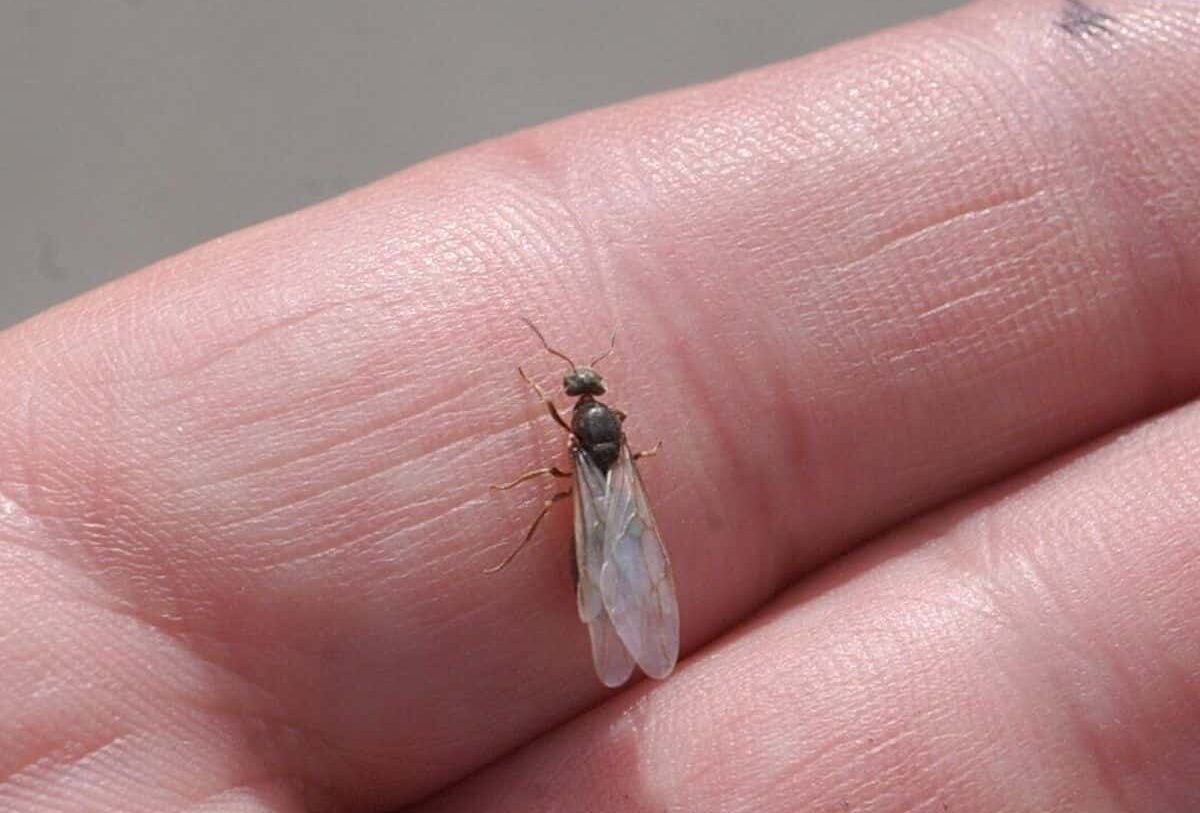
Credit: bristolpost
Ant bites usually aren’t as problematic as the bites or stings of other insects. With certain types of ants, an ant bite can be problematic, however, particularly if you’re allergic to it.
Fire ant stings are especially nasty for a lot of people as fire ants inject venom – i.e. formic acid – with each sting which can lead to swelling, itching, and other symptoms, including potentially severe allergic reactions.
The fire ants also bite at the same time as they are delivering the sting but said bite is usually inconsequential as these ants are small and have weak mandibles – the “bite” there is more just to help them keep their balance as they sting.
So, what should you do if you get a nasty bite and sting from such an ant? Fortunately, a single sting usually won’t be a problem for the vast majority of people and it will just result in an itchy red skin and, eventually, a white blister if the fire ant has injected enough of its venom.
Unfortunately, fire ants – both flying and crawling ones – are able to deliver multiple stings if given enough time and they also tend to attack in swarms if they feel that their nest or food source has been threatened. So, if you don’t react fast enough, you very well may end up with multiple bites and stings all over your body.
This will often be quite painful and unpleasant and it will lead not only to a lot of swelling and itching but it will also bring a significant risk of skin infections once those blisters grow and start popping in a couple of days. And, if you’re allergic, there can be more significant allergic reactions too.
Do You Need Medication for Ant Bites?
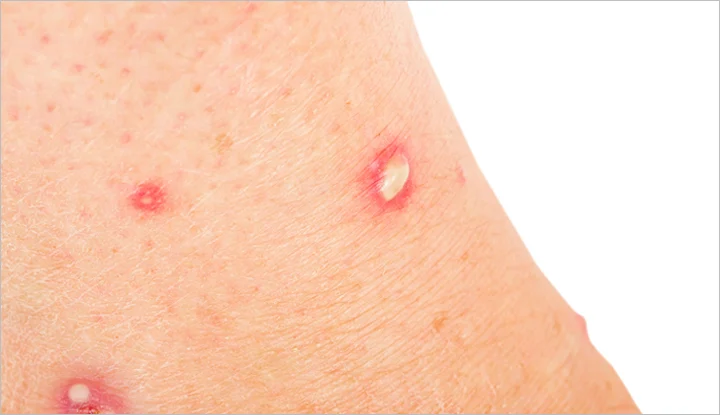
Credit: clevelandclinic
Having antihistamines on hand is always a good idea if you know you’re allergic to insect stings and the rare few severe cases may even require treatments with corticosteroids.
Aside from that, the standard recommendation for most people is to take a cube of ice and place it in a clean plastic bag, wrap the bag in a clean piece of cloth, and apply it to the stung place. This should reduce the swelling and the risk of infection. After that, even if you’re not allergic, you may want to consider some over-the-counter pain relief medication as well as a medicated cream to apply after the ice.
If you feel that you are developing a rash, you’re starting to wheeze, and you’re having trouble breathing, go to the hospital and call a friend immediately before you’ve fallen into shock.
What Should You Do If You See Flying Ants in Your Home?
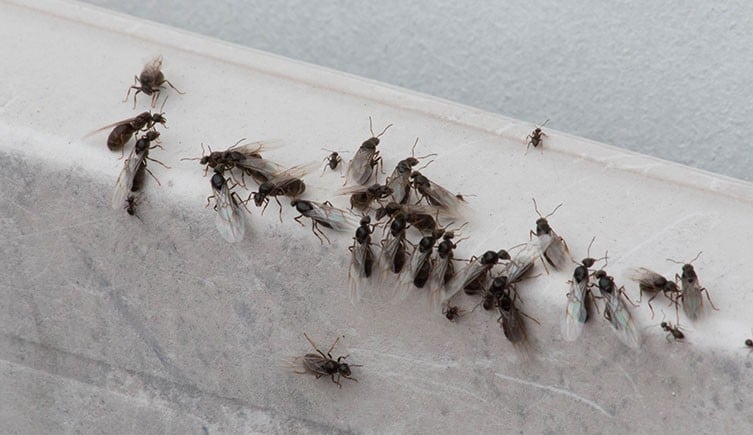
Credit: nhm.ac.uk
Ant bites can be a problem whether they come from flying or crawling ants. What’s even more of a problem with winged ants, in particular, however, is the risk of infestations.
If you see flying ants inside your home and especially if you notice the larger flying female ants, this means one of two things – you are at risk of an ant infestation or you already have an ant colony in your home and the fliers are now coming out of the cracks to go out and spread during the flying ant season.
This is a problem not because a bite from a flying queen ant is more painful than a bite from a crawling worker ant – it isn’t – but because a new ant colony under your feet will soon mean thousands of ants crawling around and threatening to bite you.
So, if you see flying ants in your home, it’s time to employ your preferred pest control methods, be it ant sprays, ant bait, pet, and other pesticides.
In conclusion
Very few of the many different ant species have painful or dangerous bites but the few that do are quite notorious and threatening. The flying ants of these species can be especially annoying and unpredictable as they often fly around in swarms, especially when the weather gets warm in the late spring and early summer months.
This means that, even though few ant species have noteworthy bites and stings, it is a good idea to stay away from flying ant swarms, especially if you know that you’re allergic to insect bites and/or that you have fire ants or black carpenter ants in your area.
